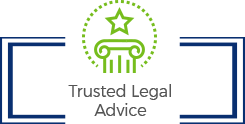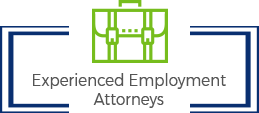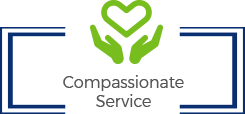Everyone has a right to a safe and inclusive workplace, free of harassment. Unfortunately, that is simply not the case for all workers across Raleigh. More than one in five employees has experienced physical, psychological, or sexual harassment or violence on the job, according to a recent study.
Workplace harassment attorneys at The Noble Law fight for clients subjected to unfair—and unlawful—treatment at work. We cannot take back your unfortunate experience, but we can hold offenders accountable.
Schedule a consultation with our award-winning employment law attorneys to discuss your concerns, learn about your rights, and pursue legal remedies under state civil law. You may be entitled to reinstatement of your job, damages for emotional distress, and compensation you lost due to demotion or termination.



What is Workplace Harassment?
It goes without saying that no work environment is perfect. Certainly, every employee experiences petty annoyances at some point. But they don’t always rise to the level of unlawful workplace harassment. It’s helpful to understand the legal and ethical implications of these offensive behaviors.
Workplace harassment is unwelcome conduct based on:
- Age (40+)
- Color
- Disability
- Genetic information (including family medical history)
- National origin
- Race
- Religion
- Sex (including sexual orientation, gender identity, and pregnancy)
- Retaliation for opposing illegal discrimination or participating in enforcement proceedings
A single offensive comment or joke can constitute unlawful harassment if a court finds that it was “severe.” It can also become illegal when enduring unwanted behavior becomes a condition of employment. Courts can also order relief when abusive or hostile behavior becomes severe or pervasive. In some cases, both are true. When harassment is a form of retaliation, courts can grant relief for a “material” change that might dissuade reasonable employees from engaging in protected activity.

Forms of Workplace Harassment
Below are specific examples of unlawful workplace harassment we see in our work as employment law attorneys representing clients across Raleigh:
- Offensive jokes
- Epithets and slurs
- Personal questions about sex
- Repeated requests for dating or sex
- Intimidation
- Offensive objects / pictures
- Ridicule / mockery
- Physical assaults / threats of violence
It’s a common misconception that an offender is always a manager or supervisor, and the victim is always their subordinate. There are many dynamics to workplace harassment. A co-worker can be the harasser. They may be someone who works in a different department or office.
It’s also possible for a non-employee like a client or customer to engage in offensive conduct. Employers are responsible to assure that each employee is protected from harassment. They must take corrective action that is prompt and effective.
The Role of a Workplace Harassment Attorney
Employers should have procedures in place to report workplace harassment. But it’s common for companies to sweep these behaviors under the carpet without a satisfactory resolution.
The Importance of Legal Representation
If you have never before been the victim of workplace harassment or discrimination to this point, you may not fully understand your rights and options under state law. When you hire a trusted attorney to oversee your case, you have peace of mind knowing your interests are protected, and someone is in your corner advocating on your behalf.
Choosing a firm focusing on employment matters means they have a firm grasp on this area of law and can provide tailored legal guidance for your situation.

Initial Consultation
An initial consultation is the first step in the legal process. It is a confidential discussion about your situation. We talk about the harassment you are experiencing and your work history with the employer. To help us evaluate your claim, it’s helpful to bring any documentation in your possession, including:
- Job contracts
- Performance reviews
- Termination letters
- Separation agreements
- Employee handbooks
We also want to see evidence of harassment, if you have it, such as texts, emails, and voicemails that support your claim. The Noble Law offers in-person and teleconferencing appointments for your convenience.
Finding the Right Attorney
The quality of your legal representation truly makes a difference in the outcome of your claim–either positively or negatively. But if you’ve never had to hire a lawyer before, you may not know where to start.
Qualities to Look For
When choosing a lawyer to manage your workplace harassment claim, look for a firm that:
- Focuses on employment law matters
- Streamlines the intake process to avoid delays
- Has extensive experience litigating tough cases
- Prioritizes ethical and transparent legal representation
- Provides the personal care and attention that many larger firms lack
- Utilizes technology and project management principles for efficient and timely service
- Maintains ongoing communication with clients on the status of their case
Perhaps the most important “green flag” when it comes to hiring a Raleigh / Durham / Chapel-Hill Workplace Harassment Attorney is a track record of success. From client testimonials to verdicts and settlements, ask The Noble Law about our history of achieving excellent outcomes for clients just like you.
The Legal Process for Workplace Harassment Cases
If you have contacted The Noble Law to file a workplace harassment lawsuit, you have probably reported the offensive behavior to your employer to no avail. Although some employers take these claims seriously, others look the other way, forcing victims to take legal action.
It’s important to act quickly because you generally have either 180 or 300 days to file a claim.
Filing a Workplace Harassment Claim
Before you can sue, you must file an administrative charge with the federal Equal Employment Opportunity Commission (EEOC) or the equivalent state agency. Your Raleigh / Durham / Chapel-Hill Workplace Harassment Attorney can identify the right agency, and compose and submit your complaint.
Once your claim is submitted, your employer is notified of the complaint. The agency can take the following actions: ask both parties to participate in mediation, investigate the claim further, or dismiss it altogether.
Often, it’s possible to reach a settlement at this point. If not, the EEOC can sue them directly or give you a “Notice of Right to Sue.”
Gathering Evidence
Evidence is critical in workplace harassment claims, regardless of whether you resolve the matter through mediation or in court. Without a “paper trail” to support your claim, your claim is less likely to go in your favor.
When in doubt, save everything related to your work situation, including employment contracts and reviews, to communications with your harasser. If you believe evidence exists but cannot obtain it, we can help.
When communicating with our team, avoid using your work email or employer-provided mobile phone. Doing so can negatively impact your job, or compromise your attorney/client privilege.

Potential Outcomes and Remedies
The value of your case depends on many variables, including the severity of the harassment and the ways it has impacted your life.
Companies that know (or should have known) about harassment may be ordered to pay compensation to the victim, including back pay and attorney fees. They may be required to enact policies to ensure a safe workplace going forward.
Possible Case Resolutions & Damages Available
Workplace harassment cases are resolved in the following ways:
- Mediation: A neutral, third-party mediator assists both parties in coming to a mutual settlement. The process is confidential, informal, and voluntary.
- Settlement: The EEOC (or similar agency) assists both parties in reaching an agreement on compensation and other remedies. Admission of liability is not required.
- Conciliation: This is the final step in the voluntary negotiation process before the agency considers the matter for litigation. At this stage, the agency has found “reasonable cause” to believe harassment occurred.
After these steps, litigation is the next option, although it is still possible to settle out of court. Our goal is to ensure you are fairly compensated for the mental, physical, and financial impact of harassment. The Noble Law does all we can to resolve your claim as efficiently and effectively as possible to save you time, stress, and money.
Book an initial consultation in our Triangle location, or at any of our offices across North Carolina and South Carolina. The Noble Law is ready to help.
Learn More
Here at The Noble Law, we are committed to educating our communities in North Carolina and South Carolina about employment law and their rights in the workplace. We believe part of our job as an employment law firm is to share our expertise with others. Explore our resources, including more employment law videos, and keep up with our employment law firm news by following Noble Notes.
Along with representing clients with claims of workplace harassment, sexual harassment, and workplace assault, we also represent workers in other areas of employment law. These areas include executive compensation disputes; workplace discrimination; retaliation and whistleblower; and pay, overtime, and leave. Learn more about our employment law firm’s Practice Areas and if you are interested in speaking with one of our employment attorneys in North Carolina or South Carolina, contact us today.





